THE MINISTRY OF UNGENTLEMANLY WARFARE (2024)
The British military recruits a small group of highly skilled soldiers to strike against German forces behind enemy lines during World War II.
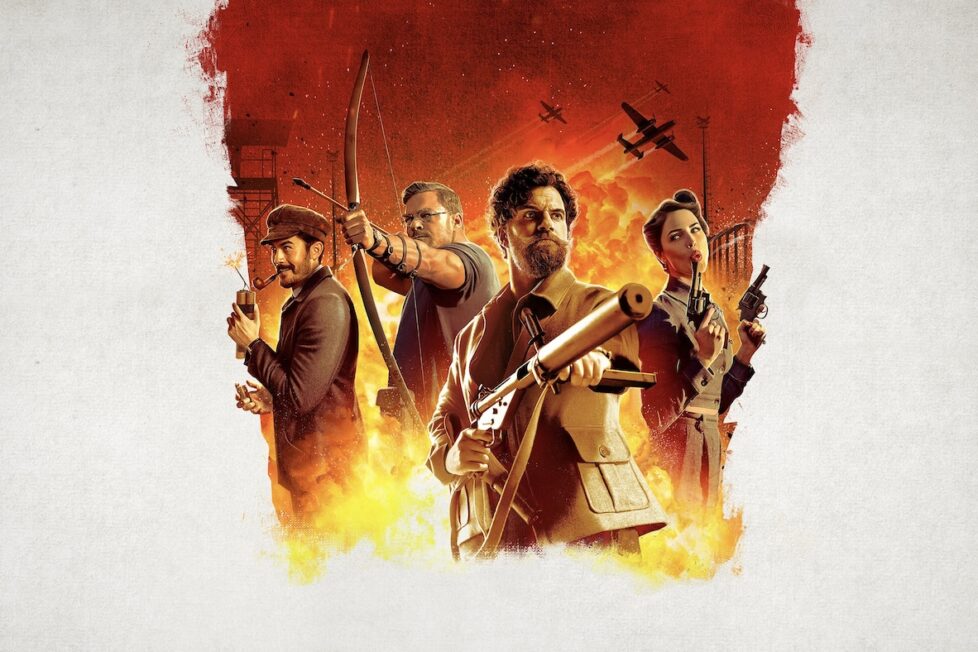
The British military recruits a small group of highly skilled soldiers to strike against German forces behind enemy lines during World War II.


The Ministry of Ungentlemanly Warfare, based on the book Churchill’s Secret Warriors: The Explosive True Story of the Special Forces Desperadoes of WWII, written by Damien Lewis, portrays a fictionalised account of Operation Postmaster. This unauthorised British special operation involved a small force of seven operatives tasked with halting Nazi Germany’s U-boat supplies in the North Atlantic during 1942. The mission takes place far from the front lines in Europe, whisking us instead to the tiny island of Fernando Po, controlled by Spain off the West African coast.
For fans of history and war films, Guy Ritchie’s Ministry may provide a breath of fresh air. It tackles a recently declassified subject drawn from Prime Minister Winston Churchill’s files, as the film notes at the beginning. However, The Ministry of Ungentlemanly Warfare gets caught between seriousness and outlandish fun. It stumbles over the weight of portraying what is essentially the world’s first special operation, conducted outside the bounds of legal and political repercussions.
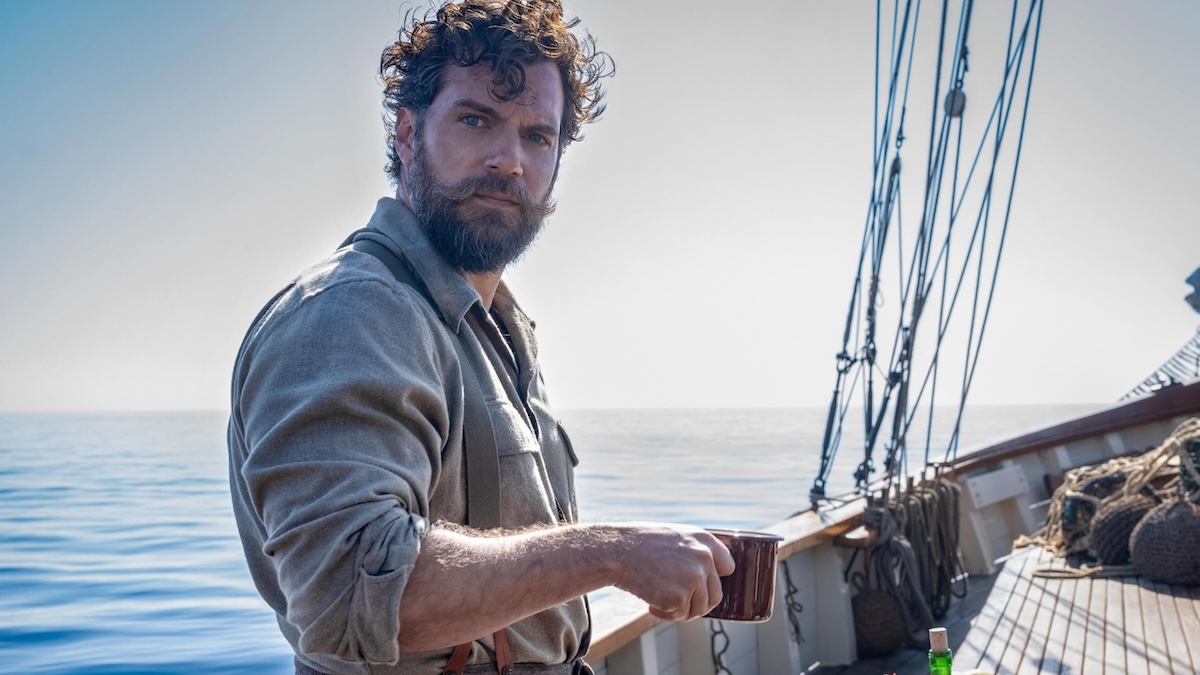
Ministry is exactly what you’d expect from Guy Ritchie, whose eclectic cinematic career began with the gangster dramas Lock, Stock and Two Smoking Barrels (1998) and Snatch (2000). Recently, he’s broadened the scope of his stories, while rarely straying from his unique style: high-octane action, witty, fast-talking characters, and propulsive editing. He went from the live-action adaptation of Aladdin (2019) to returning to his gangster story roots with the twist-filled flick The Gentlemen (2019), before landing in the serious dramatic landscape of modern-day conflict with The Covenant (2023). Ministry aligns most closely with The Man from U.N.C.L.E (2015), not only because of Henry Cavill as the top-billed star but also for its 20th-century historical conflicts serving as the backdrop for an action-comedy filled with an ensemble of superheroic spies.
The film opens with German sailors boarding a pleasure craft in the Atlantic, flying the Swedish flag. The two-man undercover team comprises a burly, moustachioed Gus March-Phillips (Cavill) and the hilariously muscled Anders Lassen (Reacher’s Alan Ritchson). The Germans are then ambushed by the rest of the crew: sailor Henry Hayes (Hero Fiennes Tiffin) and bomb expert Freddy Alvarez (Henry Golding).
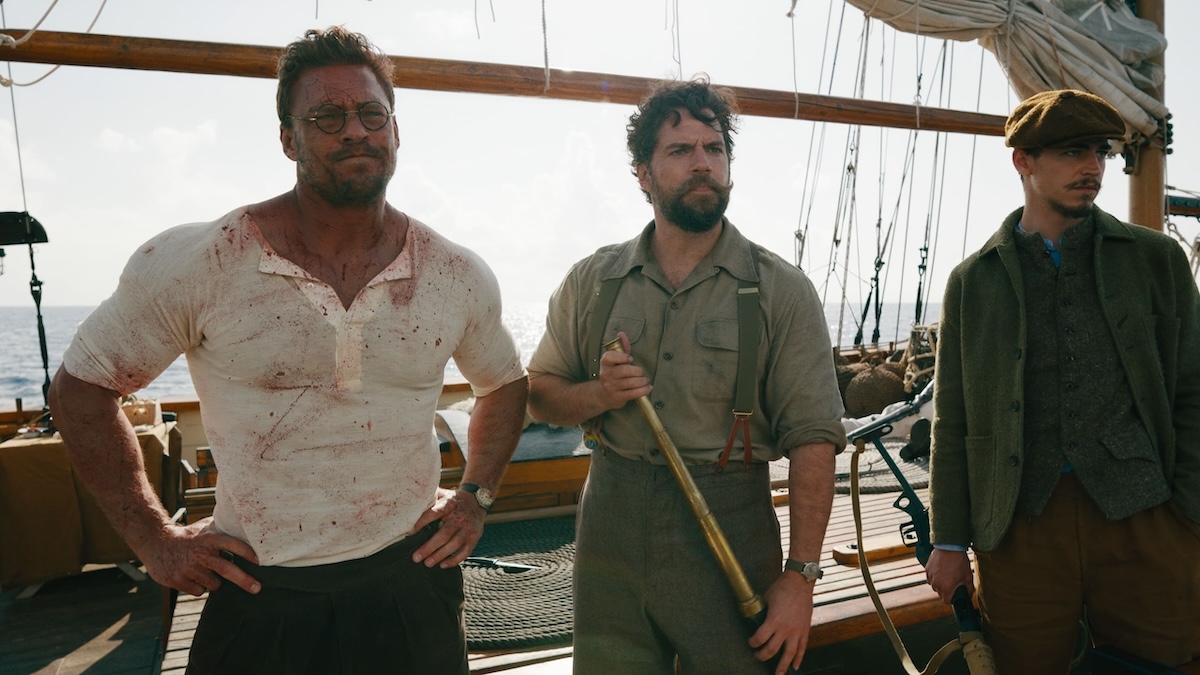
“What are we doing here?” asks Alvarez, before, in classic Ritchie fashion, we cut to a flashback crammed with expository dialogue explaining exactly how this group of characters—also including Heron (Babs Olusanmokun), Marjorie (Eiza González), and Appleyard (Alex Pettyfer)—got here.
In the flashback, Gus March-Phillips is released from prison to lead a covert mission on the orders of Winston Churchill (Rory Kinnear, whose portrayal at times feels more reminiscent of Christian Bale playing Dick Cheney), M (Cary Elwes), and Ian Fleming (Freddie Fox). As viewers may gather, Fleming was the creator of James Bond, and it’s March-Phillips who serves as the inspiration for his soon-to-be larger-than-life character. However, Ministry fails to depict the heroic March-Phillips as anything more than an amusing caricature—a calm and collected man who thrives when operating outside the law. While he undoubtedly demonstrates leadership qualities at times, there is little depth to his character. Perhaps the involvement of four screenwriters (Paul Tamasy, Eric Johnson, Arash Amel, and Guy Ritchie) proved to be too many cooks in the kitchen, hindering the development of a more nuanced portrayal with a complex hero.

To Cavill’s credit, he plays the scripted character well. He’s a kleptomaniac, but also a caring leader. This dichotomy, while hilarious, lends itself well to his talents. Overall, the ensemble cast is truly Ministry’s greatest achievement. There isn’t much depth to these superhuman characters (who can easily take out a Nazi battalion outnumbered four to five dozen), but their special abilities and rapport make for a fun watch.
Alan Ritchson is a particular standout as the lovable oaf, a bespectacled Legolas with a thirst for Nazi blood. Babs Olusanmokun’s (Dune) Heron and Eiza González’s (3 Body Problem) Marjorie also have great chemistry as the two agents infiltrating the Nazi-occupied Fernando Po, where Marjorie must distract the Nazi leader Heinrich Luhr (Til Schweiger). As expected, Luhr is a two-dimensional villain that the film tries to convince us is worse than the stereotypical Nazi. “The only thing worse than a Nazi is him,” Heron tells Marjorie. But, apparently this just means a Nazi who tortures, which isn’t that different from a regular WWII Nazi.
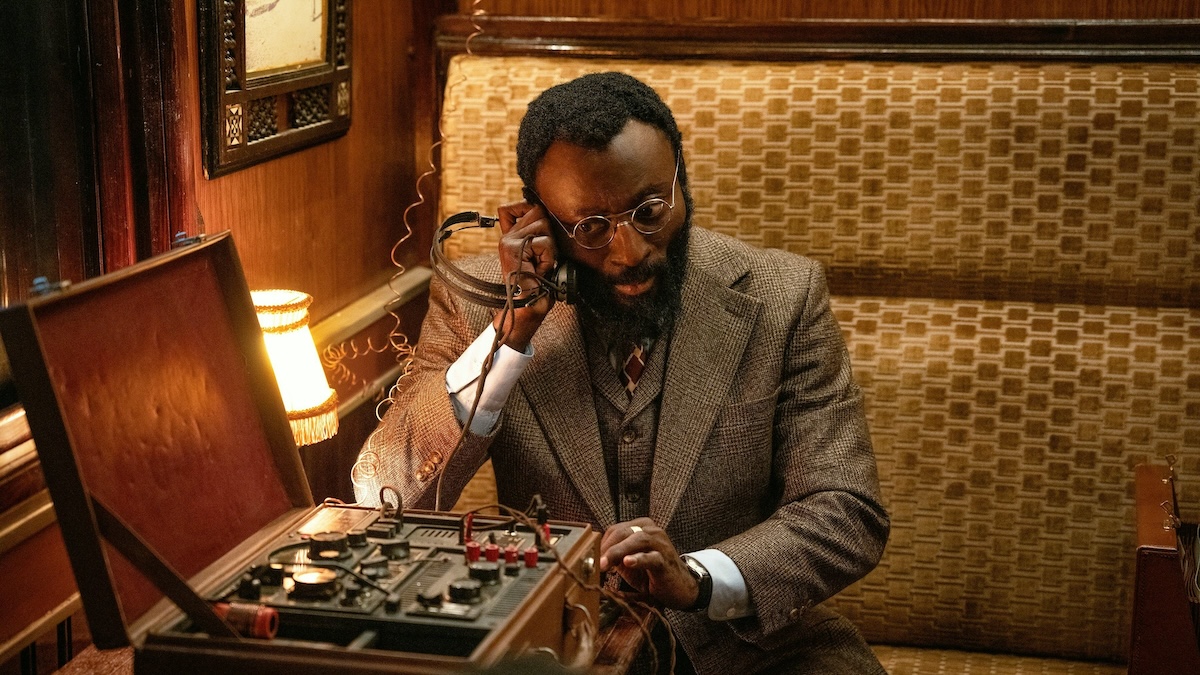
Perhaps it’s the fault of an unrefined script that Ministry struggles to find tension and forward momentum throughout the film. The film’s tension relies upon the audience’s preconceived notions of World War II as a whole. We see a few bombs dropped on London that cause minor inconvenience to Churchill’s whisky glass, and we’re told German U-boats are preventing US soldiers from landing in Europe to turn the tide of the war. But beyond these conversations, there’s no tension in the situation itself. Without our existing knowledge of 1942 from world history, Ministry would be nothing more than a tame action comedy. Perhaps placing too much emphasis on the plot to drive the narrative forward in an action-comedy isn’t the issue; the comedy itself is too tame and sparse to alleviate the film’s lack of tension. The film is too torn between historical events and the ludicrousness of its fictionalisation. However, when it allows the action to take centre stage, that’s when it shines.
The third act of Ministry is largely thrilling. The percussion-heavy score by Christopher Benstead, strongly reminiscent of Daniel Pemberton’s Man from U.N.C.L.E score, does well to propel the suspense and crescendo the action. The scale is grand, and the payoffs are passably crowd-pleasing. It fizzles out somewhat at the close, but it’s enough to grab our attention and make us enjoy the enticing allure of cannon fire.

During the film’s conclusion, a rousing speech by Churchill reminds us of the heroism of these little-known figures on their mission. The closing text reveals what became of the real-life characters after Operation Postmaster. Interestingly, the film missed an opportunity for a potential romance between Henry Cavill and Eiza González’s characters. However, their real-life marriage only lasting five months until March-Phillips’ untimely death may have dissuaded the filmmakers from exploring that avenue.
The Ministry of Ungentlemanly Warfare is perhaps the first entry for 2024 in the cinematic catalogue of WWII films, of which we seem to get a handful each year. After nearly 80 years of cinematic history, we’ve seen almost every aspect of that global conflict in some form or another, with depictions of every front of the war in every genre from the viewpoints of countless filmmakers. Yet, we’re still treated to some rousing additions that manage to offer a fresh perspective on WWII.
Just last year, we had Oppenheimer (2023) delve into the moral quandaries of the world’s first atomic bomb and Godzilla Minus One (2023), which depicted post-war Japan’s nuclear-fuelled trauma in a unique way. The Ministry of Ungentlemanly Warfare attempts to do just that: bring a fresh take to a much-depicted war. Unfortunately, while it’s a dazzling display of this recently discovered history with a great cast and some fun action sequences, Ministry fails to capture the imagination and spirit of the conflict in any truly meaningful way. It may yet entertain audiences for a single viewing, and, if nothing else, it will drive more curious learners to read Lewis’s book or to delve into the lesser-known pockets of global history.
UK • USA • TURKEY | 2024 | 120 MINUTES | COLOUR | ENGLISH

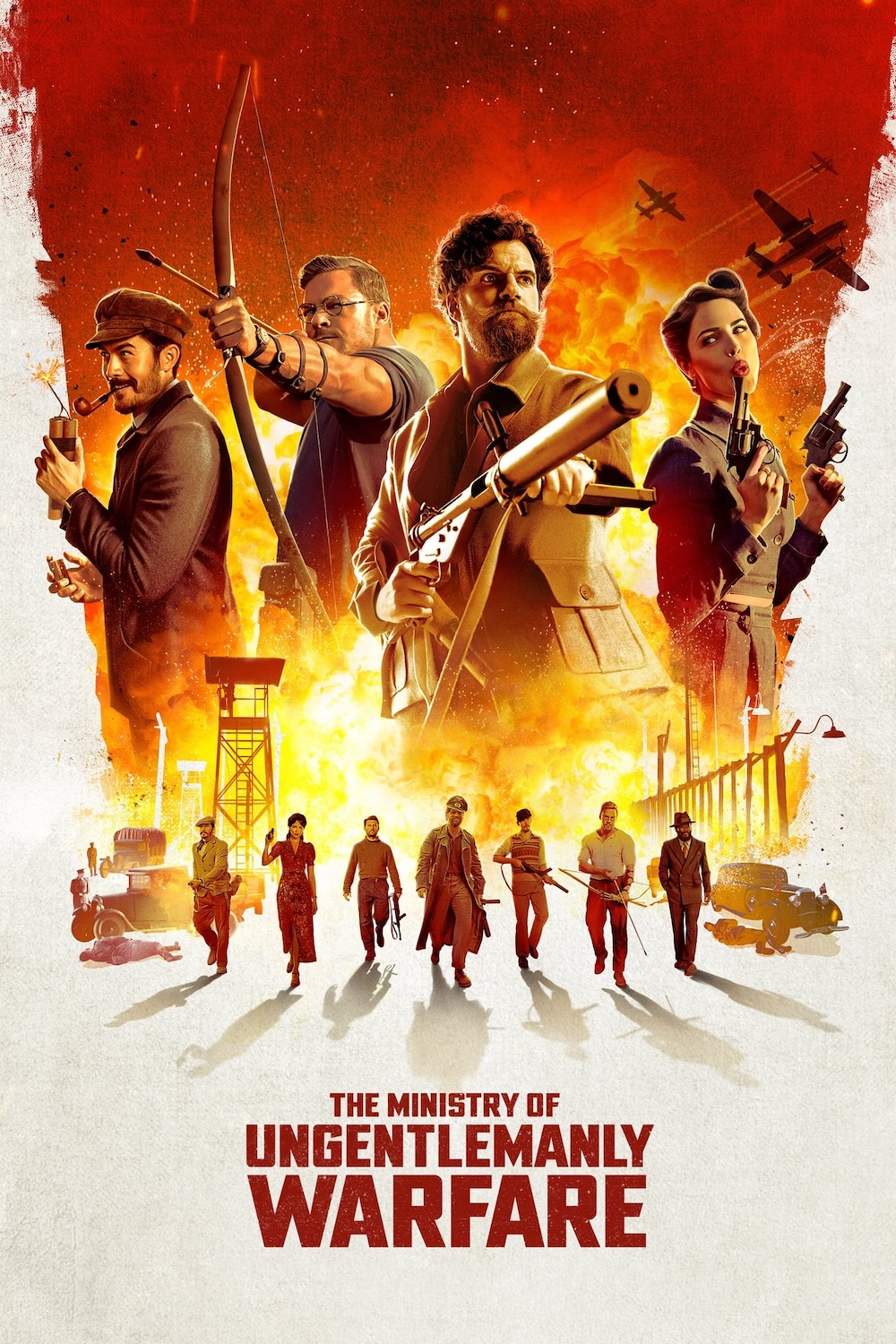
director: Guy Ritchie.
writers: Paul Tamasy, Eric Johnson, Arash Amel & Guy Ritchie (based on the book ‘Churchill’s Secret Warriors: The Explosive True Story of the Special Forces Desperadoes of WWII’ by Damien Lewis).
starring: Henry Cavill, Eiza González, Alan Ritchson, Alex Pettyfer, Hero Fiennes Tiffin, Babs Olusanmokun, Henry Golding & Cary Elwes.
